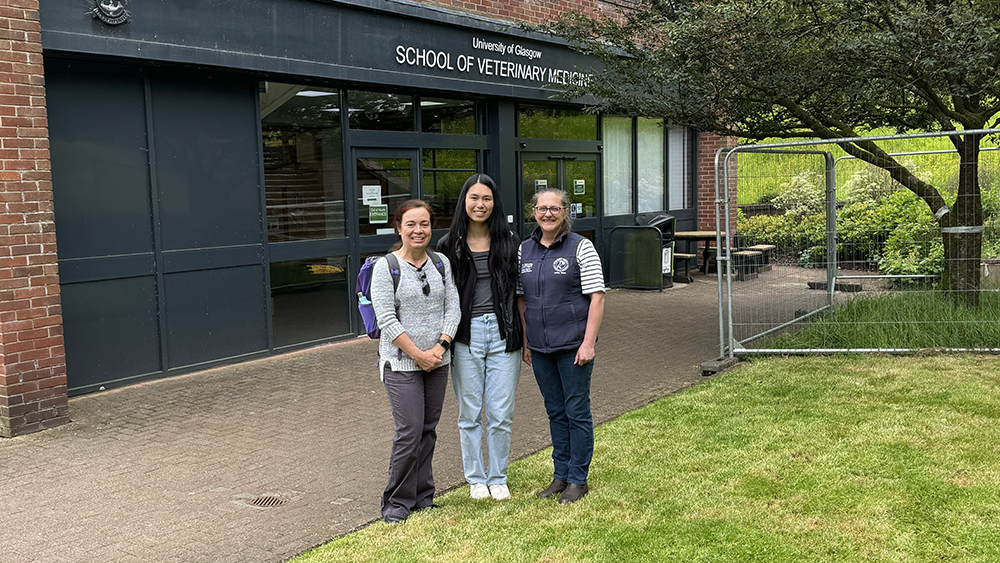Alissa Kong - Ireland
My global experience explored the different cultures and veterinary work styles in Ireland, Scotland, and England. Through living and conversing with people from other English speaking countries, I was able to fully immerse myself in the experience to gain a deeper appreciation for the intricacies of their cultures.
In Ireland, I learned about the horse racing industry through working at Gordon Elliott Racing. I shadowed the veterinarians who came to the race yard to examine horses before race days, ultrasound pregnant mares, perform lameness exams, and health check horses before traveling abroad. I learned about other types of medical and husbandry care the horses receive through shadowing and talking to the chiropractor and farriers, watching the horses train at the gallops, learning about the complexities of their feeding plan, and helping maintain the barns and stalls. My experience at Gordon Elliott Racing provided insight into how a large-scale horse yard operates, which was very different from the private barns I have previously worked at. In contrast to the fast-paced mornings, the slower afternoons allowed for ample time to converse with the riders and grooms, and I quickly came to appreciate how big of a role horses were in the daily life – both inside and outside of work – of these individuals.

In Scotland, I attended a British Animal Rescue & Trauma Care Association (BARTA) conference which focused on how different professions (veterinarians, firefighters, police, environmental agencies, etc.) can come together to form a community of practice on how to handle emergency situations involving animals. It was quite powerful to see how individuals from different countries dealing with different environmental challenges in different cultural contexts all face similar challenges in approaching disasters involving animals. I gained a new perspective on the One Health approach in the context of emergencies.

Humans and animals are connected on a deep level, and this becomes apparent when humans resist orders to evacuate because they cannot bring their animals with them or when they re-enter dangerous areas to look for their pets. For some humans, their animals are their entire livelihoods, such as farmers with production animals, and they are unwilling to leave them behind. As veterinarians and first responders, we must take this connection into account through the application of the One Health approach to better understand and tackle the situation.


In England, I spent a week at The Horse Trust, a sanctuary for working horses (Police, Military, Royal Mews) and horses that were rescued from cruelty or neglect. Through working with the on-staff veterinarian, I became more familiar with common medical conditions that older horses develop and how to assess quality of life in senior animals. It was also fascinating to learn about some of the more regional veterinary issues that commonly affect horses in this area, such as ragwort toxicity and hypersensitivity to midges. Through working with the behaviorist, I learned about how to apply positive reinforcement training to horses and what different factors to consider when working with a behavioral case. After work, I was fortunate enough to stay on-site living with the veterinarian and her family. Going to Aldi to buy groceries, watching the European football championships on TV after dinner, and going on evening walks with their dog provided familiar parallels to my life back home in America.
